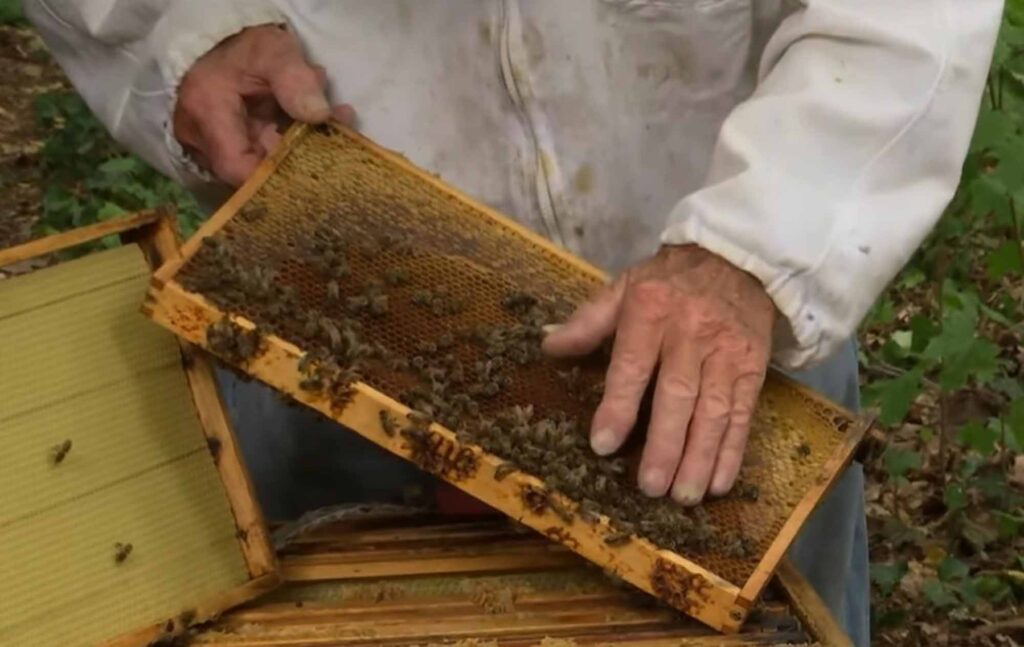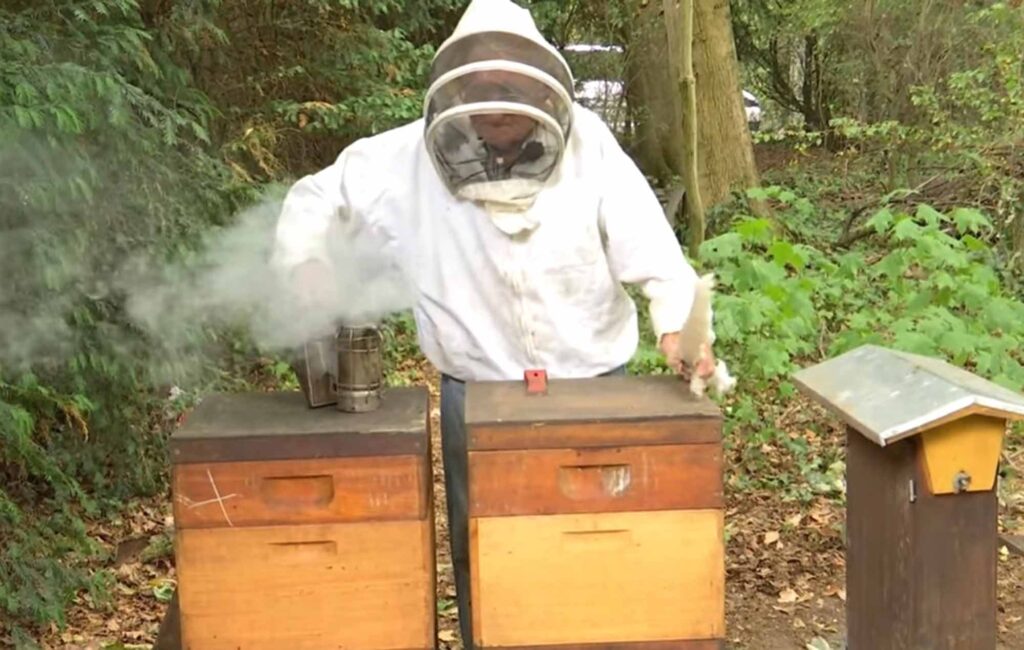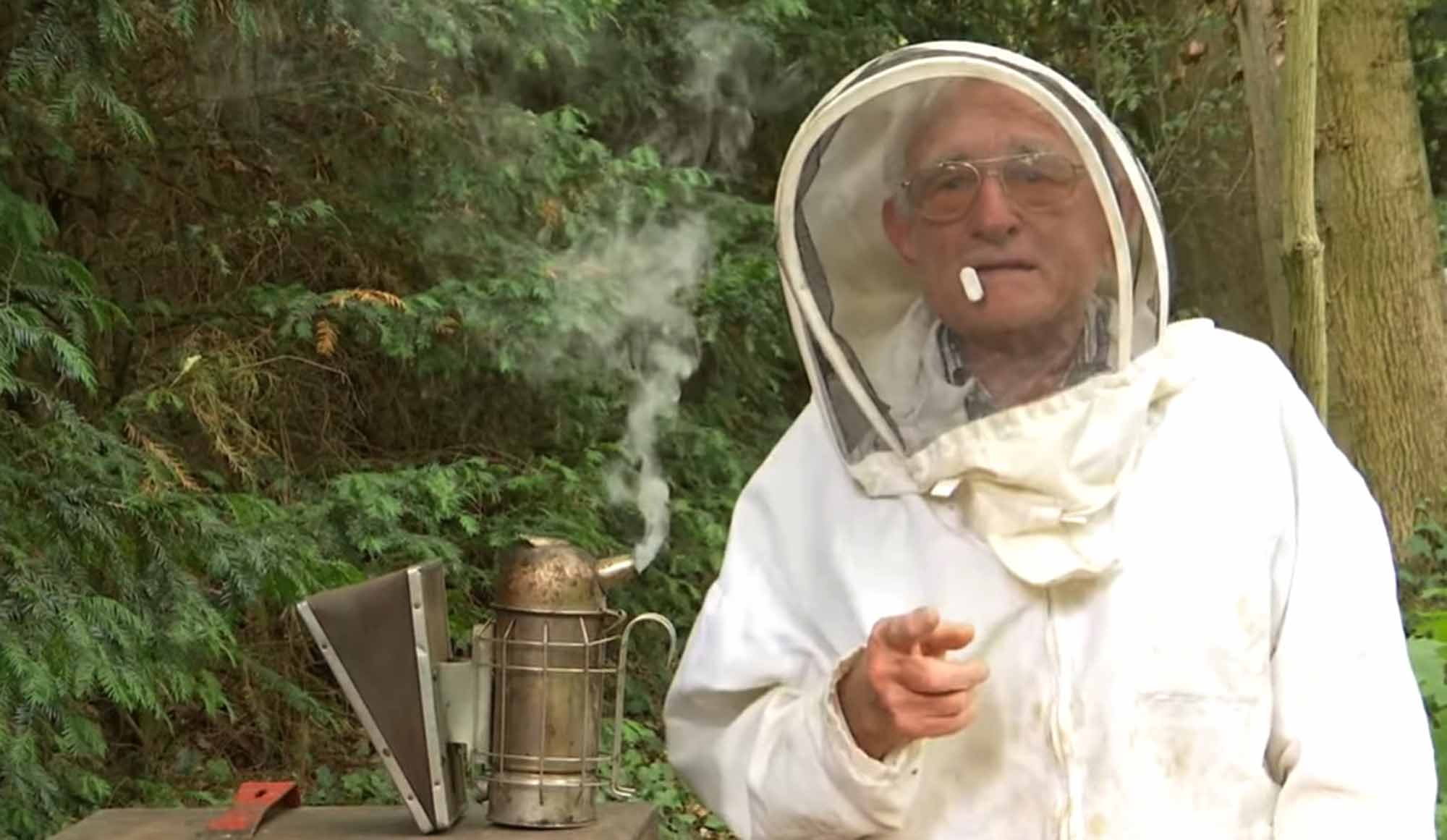More people than ever have taken up beekeeping in Austria – despite fears of virus deaths and the effects climate change.
Statistics provided by the Austrian Ministry for Agriculture, Regional Affairs and Tourism reveal that there were 33,327 beekeepers in Austria in 2021.
A vast majority of 99 per cent engage in beekeeping just as a hobby, the ministry added.

Official figures also show that Austria’s few professional beekeepers are managing 150 colonies altogether.
Meanwhile, the overall number of colonies soared from 426,000 in 2020 to 456,000 in the following year.
Agriculture Minister Norbert Totschnig of the conservative People’s Party (OeVP) said: “These figures underline that we are on the right track.
“Bees are essential to the state our environment is in. Their pollinating is crucial to the production of foodstuff in our country.”
Most colonies of bees are situated in the province of Upper Austria.
Lower Austria – which is the largest region of the Central European country – came second in this regard, followed by the southeastern region of Styria.
One colony consists of 20,000 to 50,000 bees.
Official statistics further confirm a significant increase of bee colonies per beekeeper.
In 2017, each beekeeper possessed around 12 colonies. In the year 2021, this figure grew to 14.
Around 4,100 tonnes of honey have been produced by beekeepers across Austria in the 2020/2021 business year, the ministry added.
Homegrown honey covers around 44 per cent of domestic demand for the product in Austria, a country of 8.9 million inhabitants. Each Austrian consumes an average one kilogram of honey a year.

A colony of bees has the potential to produce up to 25 kilograms of honey annually.
News of increasing beekeeping activity in Austria follow a renowned expert’s warning concerning a deadly new virus variant threatening bee colonies across the globe.
Prof Dr Robert Paxton from Martin Luther University in the German city of Halle, Lower Saxony, recently underlined that the latest variant of the Deformed Wing Virus had the potential to wipe out honey-bee populations all over the world.
Paxton called the virus – which is spread by varroa mites – the “biggest threat to honey bees right now.”
The investigations of Paxton’s scientific research group have revealed that the new variant has already replaced its predecessor in Europe – and it is quickly spreading in other regions.
Paxton explained: “Our analysis confirms that the new variant is already the dominating force in Europe. We fear that it’s just a matter of time before it will have forced its way all over the world.”
The virus causes serious damage to the insects’ wings before eventually killing them.
Honey bees are social flying insects known for their construction of perennial colonial nests from wax, the large size of their colonies, and surplus production and storage of honey.
Apart from the varroa mite, excessive usage of insecticides and construction projects are widely regarded as the biggest threats to the existence of honey bees.
To find out more about the author, editor or agency that supplied this story – please click below.
Story By: Thomas Hochwarter, Sub-Editor: Michael Leidig, Agency: Newsflash
The Ananova page is created by and dedicated to professional, independent freelance journalists. It is a place for us to showcase our work. When our news is sold to our media partners, we will include the link here.




